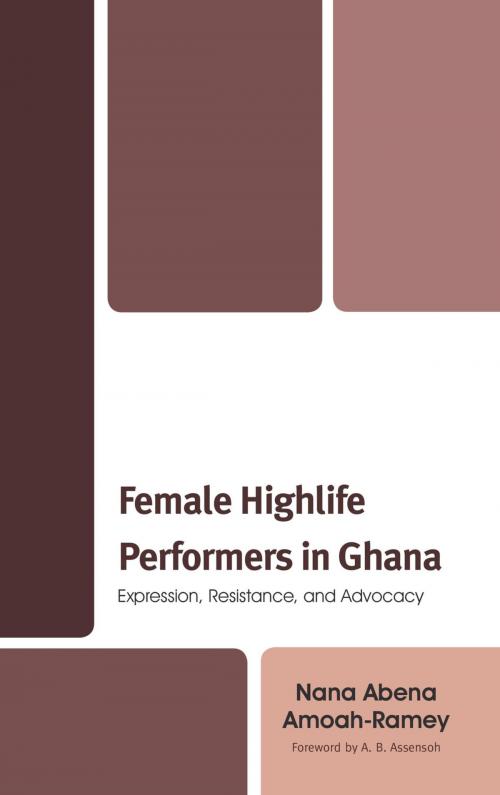Female Highlife Performers in Ghana
Expression, Resistance, and Advocacy
Nonfiction, Entertainment, Music, Theory & Criticism, Ethnomusicology, History, Africa, Social & Cultural Studies, Political Science, International| Author: | Nana Abena Amoah-Ramey | ISBN: | 9781498564670 |
| Publisher: | Lexington Books | Publication: | July 27, 2018 |
| Imprint: | Lexington Books | Language: | English |
| Author: | Nana Abena Amoah-Ramey |
| ISBN: | 9781498564670 |
| Publisher: | Lexington Books |
| Publication: | July 27, 2018 |
| Imprint: | Lexington Books |
| Language: | English |
This book offers a detailed analysis of the history of female musicians in the Highlife music tradition of the Republic of Ghana, particularly the challenges and constraints these women faced and overcame. Highlife – a form of West African music infusing Ghana’s traditional Akan dance rhythms and melodies with European instruments and harmonies – grew in popularity throughout the 20th century and hit its peak in the 1970s and 1980s. Although women played significant roles in the evolution and survival of the genre, few of their contributions have been thoroughly explored or documented. Despite being disregarded and ignored in many spheres, female Highlife musicians thrived and became trailblazers in the Ghanaian music industry, making particularly vibrant contributions to Highlife music in the 1970s. This book presents the voices of female Highlife artists and documents the ideological transformations expressed through their musical works, exploring the challenges they confronted throughout their musical careers and their contributions to music and culture in Ghana.
This book offers a detailed analysis of the history of female musicians in the Highlife music tradition of the Republic of Ghana, particularly the challenges and constraints these women faced and overcame. Highlife – a form of West African music infusing Ghana’s traditional Akan dance rhythms and melodies with European instruments and harmonies – grew in popularity throughout the 20th century and hit its peak in the 1970s and 1980s. Although women played significant roles in the evolution and survival of the genre, few of their contributions have been thoroughly explored or documented. Despite being disregarded and ignored in many spheres, female Highlife musicians thrived and became trailblazers in the Ghanaian music industry, making particularly vibrant contributions to Highlife music in the 1970s. This book presents the voices of female Highlife artists and documents the ideological transformations expressed through their musical works, exploring the challenges they confronted throughout their musical careers and their contributions to music and culture in Ghana.















